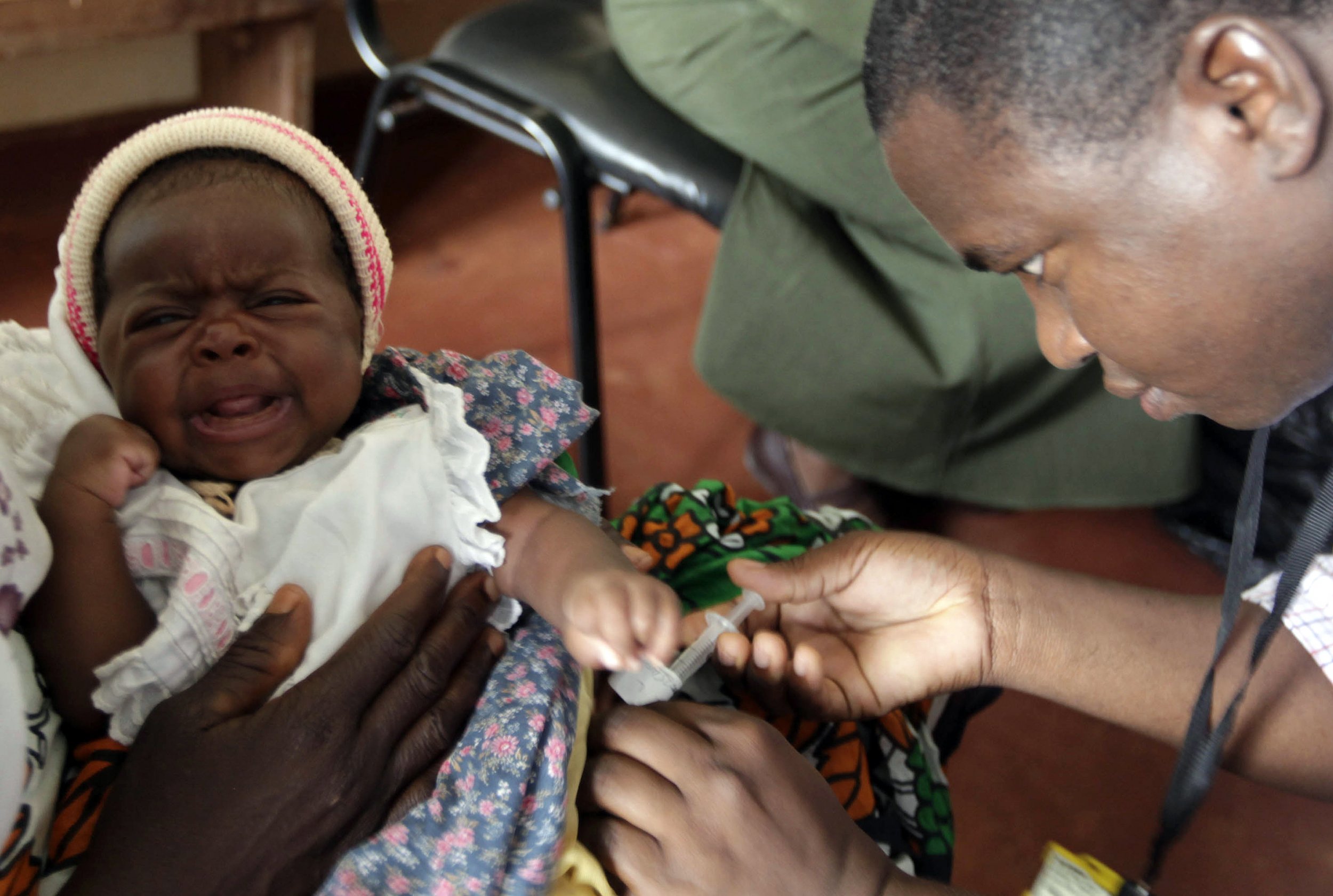
The world's first malaria vaccine will be piloted in Ghana, Kenya and Malawi in 2018, after the World Health Organization selected the African countries as testing grounds for what it hopes will be a major step in fighting the disease.
The vaccine, called RTS,S, is the first vaccine for the disease to have made it through clinical trials and will now be rolled out to the public, the WHO's Africa branch announced on Monday.
Almost half of the world's population is at risk of malaria, but sub-Saharan Africa is disproportionately affected by the disease, which is spread by mosquitoes infected with a parasite. The region hosted 90 percent of the 212 million cases recorded around the world in 2015, and 92 percent of malaria deaths in the same year occurred in Africa.
"The prospect of a malaria vaccine is great news," said Dr. Matshidiso Moeti, the organization's Africa director. "Combined with existing malaria interventions, such a vaccine would have the potential to save tens of thousands of lives in Africa."
Health policies for malaria are focused on prevention; the main means of stopping the disease's spread are the use of mosquito nets and insecticides.
But while the vaccine constitutes a leap forward, experts say that a lack of resources and the fact that the vaccine requires multiple doses may hamper its effectiveness.
British pharmaceutical company GlaxoSmithKline (GSK) developed the vaccine, which has been tested on some 15,000 children in clinical trials.
The pilot scheme will involve immunizing 360,000 children across the three countries between 2018 and 2020, AFP reported. The WHO selected Ghana, Kenya and Malawi because despite running large anti-malarial programs, including widespread use of insecticide-treated nets, they still have a high number of malaria cases.
Read more: Genetically modified African mosquitoes could halt malaria spread
The first stage of the pilot programme will cost $49.2 million and is being jointly funded by Gavi, the Vaccine Alliance; the Global Fund to Fight AIDS, Tuberculosis and Malaria; UNITAID; the WHO; and GSK.
"The world's first malaria vaccine is a real achievement that has been 30 years in the making," said the chief executive of Gavi, Dr. Seth Berkley. "Malaria places a terrible burden on many of the world's poorest countries, claiming thousands of lives and holding back economies. These pilots are crucial to determining the impact this vaccine could have on reducing this toll."
The vaccine consists of three injections administered over the course of three months, followed by a final booster dose 18 months later. It has shown limited efficacy in providing protection from malaria: trials showed that the vaccine prevented around 40 percent of cases in children aged between five and 17 months, while it also cut cases of severe malaria by a third. The vaccine's effectiveness, however, is significantly diminished if the fourth dose is not administered.
While the vaccine's rollout constitutes a "landmark," RTS,S has so far only shown that it offers protection for around one year after the final dose is administered, says Professor David Conway, a malaria expert at the London School of Hygiene & Tropical Medicine. "If it only gives protection for a short time, what will happen to the children afterwards?" says Conway.
Conway also points out that the vaccine has a relatively low efficacy rate compared to vaccines for other diseases, and that even this rate may be hard to maintain in poorer areas of the trial countries where resources and staff may be stretched. "These things can make even the effective delivery of even well-proven vaccines very problematic," says Conway.
The vaccine will only be given to children in the target age group of five to 17 months and will not be available to older children or adults. The ministries of health in Ghana, Kenya and Malawi will decide on the specific implementation of the schemes, including which regions will be selected for the rollout.
Uncommon Knowledge
Newsweek is committed to challenging conventional wisdom and finding connections in the search for common ground.
Newsweek is committed to challenging conventional wisdom and finding connections in the search for common ground.
About the writer
Conor is a staff writer for Newsweek covering Africa, with a focus on Nigeria, security and conflict.
To read how Newsweek uses AI as a newsroom tool, Click here.








